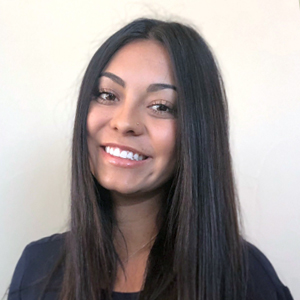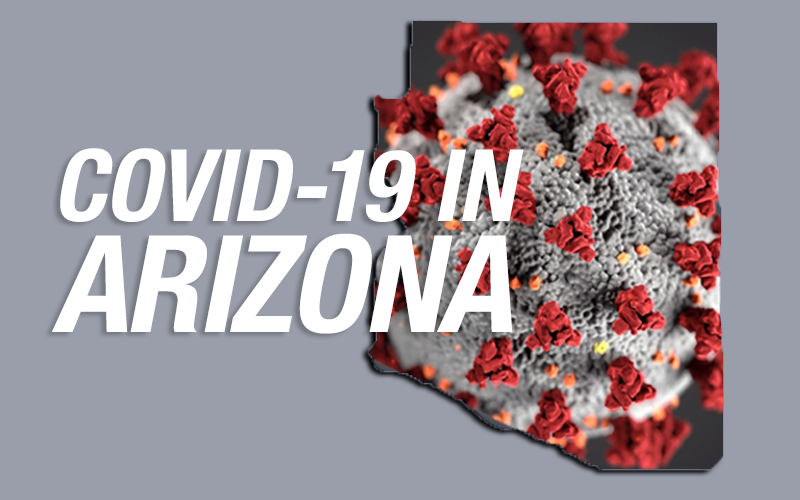Navajo leaders said the tribe could begin moving toward the phased reopening of the reservation as early as next week, but they continued to urge members to take precautions to keep the number of COVID-19 cases trending downward.
Despite the optimism, the Navajo Nation already announced it will continue a reservation-wide weekend lockdown for at least the next two weekends, which would be the 16th and 17th such lockdowns.
“July 27 is the day” leaders expect to announce a decision, Navajo Nation President Jonathan Nez said Tuesday during an almost two-hour virtual town hall meeting. “We’ve got health care experts that are going to give us updates about what’s happening all around us, and we’re going to make an informed, data-driven decision.”
Nez issued a challenge, saying that if residents can get the number of new infections down to fewer than 50 a day for 14 days “that will support reopening certain places for Navajo usage.” He said the number of cases has been below that level since July 15; the Navajo Department of Health reported 24 new positive COVID-19 cases Monday.
No new deaths were reported Monday on the reservation, where the death toll stands at 422.
“I’m not saying we’re going to open up restaurants for large gatherings,” said Nez, suggesting that lakes and tribal parks could be the first to open. “But I think there needs to be a gradual reopening for us,” adding that the reservation might continue to be closed to visitors.
Nez and Vice President Myron Lizer both stressed the importance of continuing precautions, including hand-washing, mask-wearing and social distancing. And they said the Navajo Nation can’t be in a rush to reopen.
“Look at what happened when other states … opened up early, without any phasing approaches, just opened it up,” Nez said. “And you saw that skyrocketing cases in those states.”
They also noted the difficulty the continued shutdown poses for tribal members – “I know we want to get out and spend some time and have some fellowship,” Nez said – as well as for businesses.
“We face a very real threat of our small businesses going out of business, furloughing its employees, thus losing any benefits they might have, and losing market share,” Lizer said.
“But as the president says, it’s a balancing act. As we look to protect our most vulnerable citizens, we have to look at limiting the opening of certain businesses and limiting capacity as well.”
Nez said government officials plan to meet Saturday with health experts before deciding what action, if any, to take Monday. But he also thanked tribal members for helping improve the situation this far.
“I can’t reiterate how proud I am of you, but we, we have to continue to do what we have been doing, or else we’re going to see increases,” he said.
As of Tuesday, July 21, the Arizona Department of Health Services reported a total of 148,683 cases of COVID-19 and 2,918 deaths in the state. Officials reported 3,500 new COVID-19 cases and 134 new deaths on Tuesday alone. They said 1,019,120 tests for COVID-19 have been completed in public and private labs in Arizona, and 12.4% of tests have come back positive for the virus that causes the disease.
COVID-19 cases spread in long-term care facilities due to community living
Nursing homes and other long-term care facilities say they can’t stop the spread of COVID-19 without regular testing and rapid results. In a letter last week, KJZZ reported, a trade group representing nursing homes and assisted living facilities warned all U.S. governors that they must intervene.
As the first federal relief package winds down, scientists report news promising vaccine
With the first federal relief package ending in days, congressional Republicans and Democrats can’t seem to agree over how much money should be included in a new relief package for Americans suffering during the pandemic, Indian Country Today reported. But amid the feuding on Capitol Hill, scientists reveal good news on a promising new vaccine to combat COVID-19.
Valley company to conduct phase 3 vaccine trial
The Hope Research Center in Phoenix is one of 80 U.S. companies conducting phase 3 trials on a vaccine to fight COVID-19, which involves administering it to thousands of people to test for efficacy and safety. Dr. Nathan Alderson, the CEO of the Hope Research Institute, told ABC 15 the big goal is to develop 300 million safe and effective vaccines by January.


